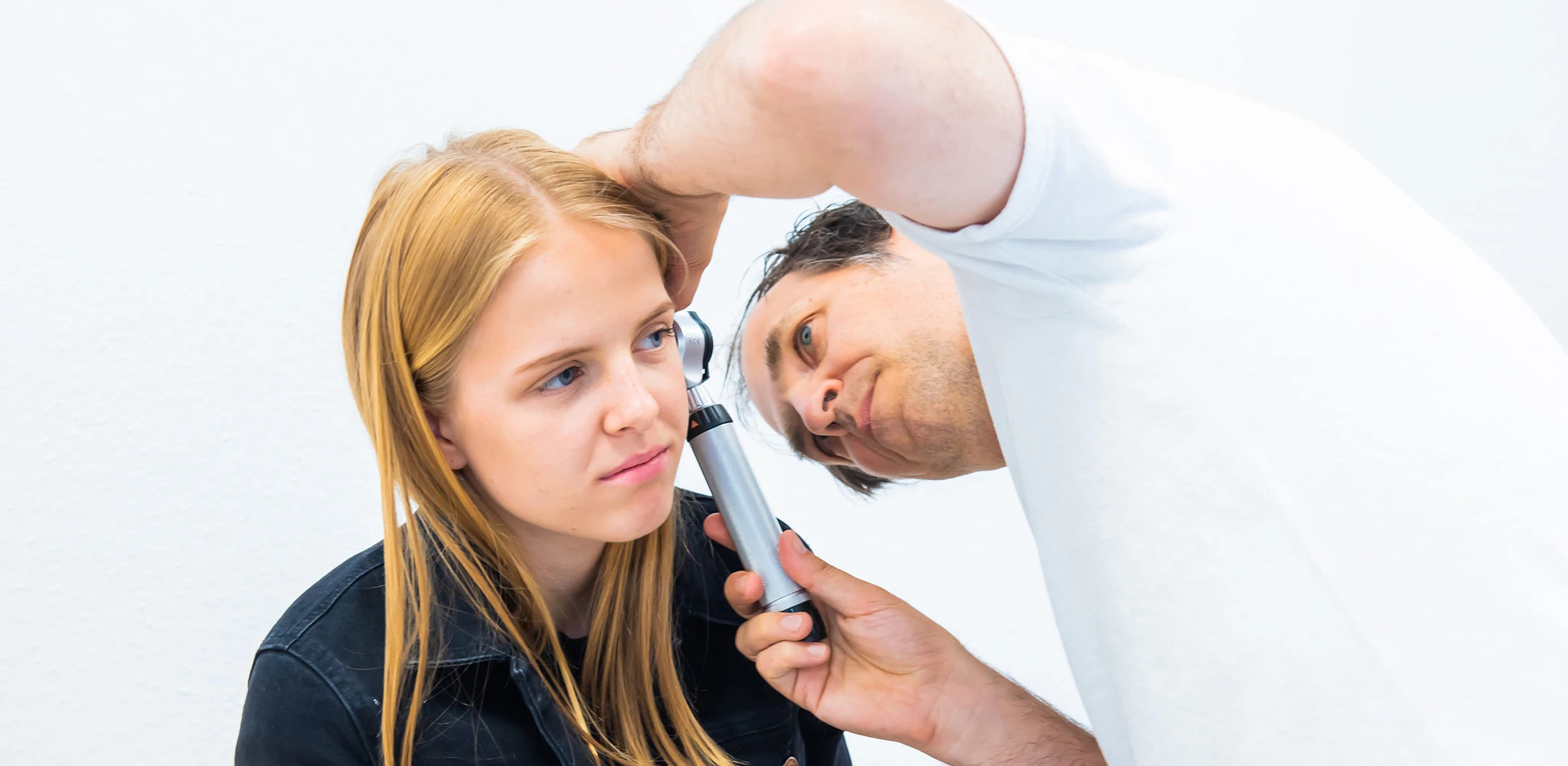When the doctor scares you...
There are always children who are terrified of their paediatrician - or of a visit to the surgery. What can you do about it? A lot.
First of all, let's get one thing out of the way: If your child is doing well in life, is off to a good start overall and only has isolated fears (e.g. of visits to the doctor), then you can leave it at that for the time being. That is very important. So, don't always dwell on it or argue with your child, but simply accept it. That's the way it is - and it usually gets better as your child grows up. However, it's not usually something that can be fixed in a flash.
The next point: you need to realise when a visit to the doctor is really necessary. And when it can be avoided. Nowadays, you can clarify a lot of things via video, email, photos and telephone - without having to drag the child to a doctor's surgery.
However, if a visit to the doctor's surgery is really necessary, for example for an examination, a vaccination, a laceration, etc., then three aspects are very, very important:
As an adult, as a mother or father, you must have a clear inner attitude towards this matter. And communicate this to the child. "Mum and dad have decided that we're going to get vaccinated today. We can do it together. We trust you to do it." Period.
You should still recognise the child's fears, worries and needs. In other words: give the child some feedback. "I can see that you're very scared. I can see that you're worried. But hey, we'll get through this together. You can be scared, you can cry. But we'll get through it together."
And when it has worked out, it is very important to give the child a framework in which they can work through the whole thing again, look at their emotions together once more and give them feedback: "Wow, I saw how scared you were and that you still managed to cope." And/or you can let your child describe how they felt in the situation once more. Then you can also praise them for enduring the fear and coming out of the situation stronger. You can also offer comfort - and then all will be right with the world again.
What is of little or no use is trying to reason with your child when they panic. Even persuasion is usually unsuccessful. In a situation like this, we adults - doctor and parents - have to take decisive action together. And then, for most children and parents, the medical intervention or procedure in the practice is easy to endure.
Incidentally, these three points come from the concept of "non-violent communication" by Marshall B. Rosenberg. If you want to know more, you can start here on Wikipedia.
Further interesting tips
Cold limbs
Today we have a medical history from the category: small, but very annoying. It is the so-called Raynaud's syndrome. The result: cold fingers and toes.
RSV vaccination
An important topic at the start of the infection season: the so-called RS virus vaccination. So-called because it is not a vaccination in the true sense of the word.
Phubbing
From what, please? Phubbing. A word that would be best if it didn't exist. It's a contraction of the two English words "phone" and "snubbing", which means to snub or offend. And it describes the moment when an interaction or communication is interrupted by reaching for a smartphone or other digital media.
